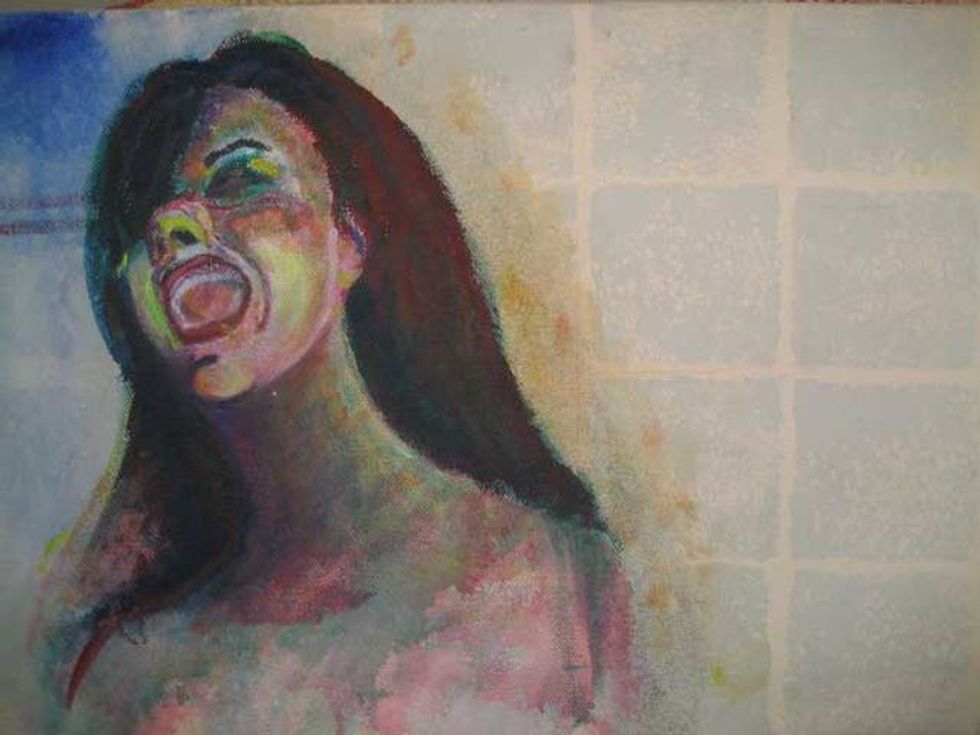On March 13, 2015, I turned 20 years old and my birthday present from a recent friend I had made was a gentle hand on my thigh and a slew of compliments including grand claims of my being “pretty and fun.” He made sure to emphasize the pretty part throughout the 40-minute car ride on the way to a birthday dinner my close friend had set up for me. He would rephrase the sentiment artfully into variations such as; “I find you really pretty” and “I think you’re very pretty” and “you’re so pretty.” In between some of these pretties, he told me that I was really easy to talk to and that he felt like he hadn’t been able to open up to someone so much in a long time. This I found to be significant, and every time he would say something meaningful like that and then call me pretty, I felt that it only dragged the important stuff through the mud, giving it a superficial coating.
The rest of that week, I spent on the beaches in Florida with my two female friends. They liked to inform me frequently how much “sexier” I looked in a bikini than they ever would. This didn’t make me feel particularly self-conscious or particularly confident. More than anything, it made me feel irked and alienated because I didn’t know what their intentions were in saying it or how to respond. If I said, “Well, I’m not always 100 percent happy with my body,” that would be true, and if I responded, “Thanks, I love my body,” that would also be true. But I was sure either response would be wrong because I had a sneaking suspicion that somehow whatever I said would have more to do with their bodies, in their minds, than with mine. I mostly responded with a strained “Thanks?” and by the end of the week a passive, “cool” or “OK.”
More recently, I met a guy at a party near my college and was sitting down taking to him. We had been talking about his family. I learned about the dog tag he wore around his neck, his father’s brief acting career and his dreams for the future. He hadn’t learned anything about me. He hadn’t asked. But at the end of the night, he said this: “I’m surprised I was even able to talk to someone like you.”
“Someone like me?” I asked, curious as to what kind of person he thought I was based on the scant information I had given him.
“A beautiful woman,” he said.
“A beautiful woman?” I repeated.
“Yes” he insisted, “you’re a beautiful woman,” as if he were convincing me.
“That doesn’t mean anything to me,” I told him.
I've learned that to most people beauty is symmetry, surface, proportion. Being identified as this type of beauty is not something that makes me feel special or appreciated. Oftentimes, like in these past encounters, it can actually make me feel invalidated, like once that word has been spoken, I have nothing more to offer and that simply isn't true.
I want to be pretty and cute and sexy all wrapped up into one great big beautiful. But I want to be beautiful in times filled with emotion and self. Moments when my face is wet and distorted from crying and laughing at the same time, or I’m shrieking with an intense joy that I just can't withhold. To be called “beautiful,” as if I simply walk around every day blank faced and beautiful, makes me feel empty and superficial, and it shows that the person referring to me as such might just see me that way. The next time someone calls you beautiful, try asking them, "Why am I beautiful?" The answer might reveal just how much (or how little) that person cares about what's truly beautiful about you.
Real beauty is asymmetrical, and it shows itself in instances more penetrating than an empty image.

















